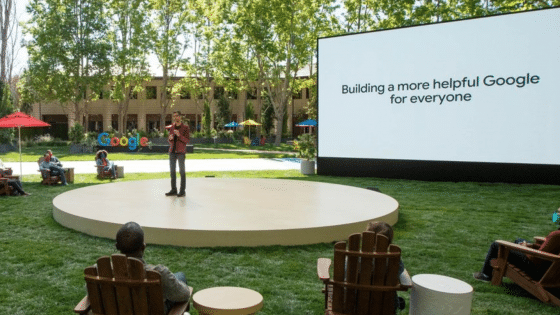In today’s digital world, brands are utilising multiple forms of marketing and advertising platforms to achieve their desired outcomes. Besides branding, social media marketing, influencer marketing and live streaming, a new comprehensive form of marketing known as performance marketing is taking over brands to achieve even better results. To find out more about this marketing tool, I spoke with Pieter Dijkgraaf, Head of Performance at 2Stallions to find out more about performance marketing, his passion and what it takes to connect and engage customers in this digital era.
Pieter, Welcome to Marketing in Asia. Let’s dive straight to find out who Pieter is, your passion and how did you decide on a career in marketing?
Thank you, I appreciate the opportunity to interview here with you and share some of my world with your readers. I’m 33 years old. I’m originally from the Netherlands. I decided to go into marketing pretty early on in life, I studied Business Economics and eventually earned a Masters in Marketing Management from the University of Tilburg. To me they were all logical choices simply because I enjoyed them and they suited my passion for marketing.
I started my career 10 years ago as a Google Ads specialist, but eventually chose to broaden my scope in Performance Marketing. In a nutshell that basically means that I make sure that money invested in marketing activities is actually making a return.

You were an ad specialist with Google. What made you decide to switch to digital performance marketing?
I wouldn’t really classify it as a ‘switch’ per se, most aspects of marketing are interconnected. Performance marketing encompasses almost all digital channels like SEM, SEO, Social, Marketing Automation, Programmatic, Affiliate, Marketplaces. It also works hand-in-hand with data analytics, and activities like conversion rate optimization.
So, to put it simply, Google ads is a small part of performance marketing. While working for Google, I loved the possibilities that Google ads provided. After a couple of years I felt that I wanted to explore all possibilities that digital marketing had to offer, and as a result, I felt my best opportunities existed in the fast pace of agency life, which would challenge me and keep me learning.
Pieter, share with our readers, what is performance marketing and why should brands care?
Performance Marketing is a term that refers to online marketing and advertising programs that are mostly focused on driving measurable results. Essentially, performance marketing uses data to make sure that all your marketing activities are running efficiently. Part of this is setting up channels and tracking analytics to drive targeted return on investments (ROI).
In the highly competitive environment of the digital age, brands are constantly gathering data from their interactions with and around their customer base. With social media channels, websites, advertising, and so many things to stay ahead of, it can become overwhelming for brands to know how to best use the data they have. One of other biggest issues many brands face is calculating their ROI in the face of all that data. Performance marketing is key to tying that all together – figuring out how to optimize and use the data to improve channels and manage your ROI.

What is the difference between brand and performance marketing, if any?
Brand marketing defines a company’s reputation, its values, the quality of its products and services, and more. It’s all about enhancing credibility and building trust. Brand marketing aims at winning an emotional response from the consumer to increase customer loyalty and motivate them to purchase more products out of that loyalty.
Performance marketing, on the other hand, deals with concrete data, like lead generation and conversions (e.g., email sign-ups and number of purchases). Basically getting quicker – and better! – return on your investment by tapping into the collected data.
Brand and performance marketing should complement each other; both aspects do best when they are used in unison.
What are some of the trends in performance marketing in 2021 and what areas should we take note of?
The biggest trend that everyone is talking about at the moment is the iOS 14 update that prevents digital advertisers from tracking audiences in the way they have been able to do in the past. Basically we are getting less insights. In the past, we had this image that digital marketing was always moving forward and in the future we would be able to access all kinds of relevant data that would help us deliver relevant marketing to individuals where and when they wanted it.
Now that we are “in the future” we see that we are actually more restricted than we were in the past due to new data privacy laws and regulations. I understand, of course, that there’s a place for data privacy – no argument there – but it does mean that marketers like myself have to find new, better ways to reach our audiences.

In your opinion, how well do brands in Asia understand and utilise performance marketing for their products and services?
Coming from working in Europe for 8 years, I have found that the awareness about performance marketing among C-suite executives is lower in Asia. Many brands don’t fully understand how it works, or how it differs from ‘regular’ marketing. This is possibly because the term hasn’t yet been as widely used in Asia as it has been in Europe. As a result, performance marketing budgets tend to be smaller than in Europe. That said, I have noticed that the “younger” generation working at brands have a better grasp on the need for performance marketing and a clearer understanding of the benefits, so who knows, perhaps we will see a rise in performance marketing budgets as the new generations step into leadership roles.
Does one need a big budget to consider performance marketing as part of their marketing efforts, especially for small SMEs and start-ups?
Not at all! That’s the beauty of it. You can just determine when a campaign is profitable based on your own company margins. This means you can set and adjust budgets as you go, depending on how campaigns progress. My recommendation is always to start small and when things are running the way you want you can just expand.

What is your leadership philosophy and your three tips for those who want to embark on a career in digital marketing, specifically in performance marketing?
I believe in giving people freedom and trust. This way they are not afraid to make mistakes and are pushed to learn and grow. They are also pushed into taking responsibility for their work.
- Start at an agency. Your learning curve is going to be very steep and it will be hard work, but you will learn a lot in a very short period of time and it will serve you well in the future.
- Make sure you have a drive to learn and keep learning. New developments happen very fast in the digital marketing world and it’s important to stay on top of them as trends and technology changes.
- Know your way around data and people. Marketing is all about people in the end, and understanding the role that data plays in reaching them will help you put together strong marketing campaigns.
What is the latest marketing book that you read and what are some golden nuggets from that book.
Not necessarily a marketing book, but coincidentally I just finished the 1936 classic “How to make friends and influence people”. This is basically a business book on how to manage people, clients as well as team members. It also helps you learn how to be a leader. Fundamentally, however, this is a marketing book at heart – after all, making friends and influencing people is really what marketing is all about!
How can our readers connect with you?
Just add me on LinkedIn, I’d be happy to connect with them.
Kartina is Marketing In Asia's Editor for Op-Ed. She is also the Founder of Tin Communications. A media specialist with over 20 years of experience in both public and private sectors, she helps SMEs grow their business through strategic media and marketing plans. Connect with her on LinkedIn. You may also reach her by email at kartina@localhost.



















